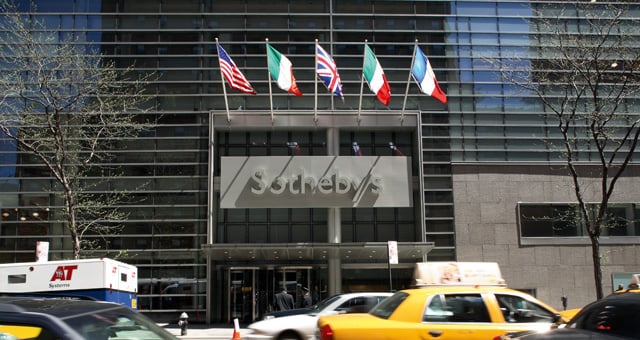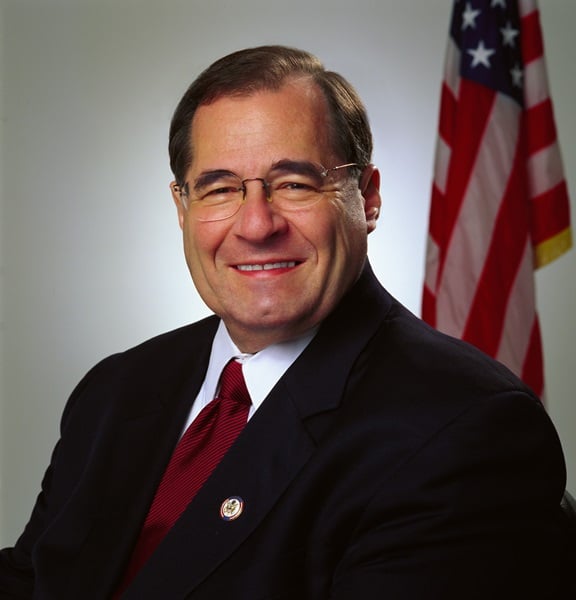ART WORLD



Supreme Court Declines to Hear Artists' Resale Royalty Suit—Who Wins?

Chuck Close.
Photo courtesy of Michael Loccisano/Getty Images.
Photo courtesy of Michael Loccisano/Getty Images.
The Supreme Court has declined to hear an appeal in a California lawsuit brought by artists including Chuck Close and the estate of Sam Francisagainst auction houses over resale royalties.
Both sides are interpreting the results to weigh in their favor.
The California Resale Royalties Act of 1976 requires auction houses to pay a five percent royalty to artists when their works sell at auction for more than $1,000, including to parties outside California. A California appellate court ruled in May that the part of the law applying to interstate commerce was unconstitutional, saying that it violated the Commerce Clause.
The artists sued Christie's, Sotheby's, and eBay for failing to pay royalties for some sales that were conducted in California.

Sotheby's New York.
Image: Courtesy of Sothebys.com.
Image: Courtesy of Sothebys.com.
“We are very pleased with the decision of the Supreme Court," said a representative of Sotheby's in an email to artnet News.
A supporter of resale royalty similarly interpreted the decision in his own favor, pointing out that the core of the California law still stands.
“I don't view this as a negative," said Theodore Feder, president of the Artists Rights Society, in a phone interview. “The appellate court decision confirmed the overall act while excluding the portion that can be viewed as applying to out-of-state sales, so the law stands without that phrase, and the Supreme Court upheld the California law without it. The California court could have called the whole thing unconstitutional, but did not."
The plaintiffs also include Laddie John Dill and are represented by Ira Bibbero, in the California office of Browne George Ross LLP. He did not immediately respond to a request for comment.
The California court remarked that that the "invalid clause," the one relating to interstate commerce, is “severable" from the rest of the Act. The result of that court's decision is that the rest of the law stands.
Resale royalties are “a fundamental right enjoyed by artists around the world that we hope will finally be accorded to American artists," Federtold artnet News in 2014. ARS, as an outside party in the case, filed an amicus brief in support of the plaintiffs.
Nicholas M. O'Donnell, of Sullivan & Worcester, told artnet News that the Supreme Court's decision doesn't necessarily indicate a position on the merits of the California law, saying that the Court typically takes cases when different circuits have issued contrasting opinions, which is not the case here.
Many artists have long felt that, when their works sell at auction at dramatically higher prices than the original sale price, they ought to get a cut, and some lawmakers agree.
New York Representative Jerrold Nadler has repeatedly put forth the ART Act, which would provide a resale royalty of five percent of the sales price, up to $35,000, for any work of visual art sold at auction for $5,000 or more. The royalty would apply only to auctioneers that have sold at least $1 million worth of visual art during the previous year.
Nadler has slammed Christie's and Sotheby's, saying that the houses pushed for concessions in the act but finally failed to support it despite winning those concessions. He says they negotiated with him in bad faith.
“If you're a proponent of resale royalty, the Supreme Court declining to hear the case underscores the case that a national policy is needed," O'Donnell said. “Of course, we do have a national level policy—there are no resale royalties. You could argue that this decision indicates a reason to unify things.
--------------
Jerrold Nadler Leads Renewed Push For US Artist Resale Royalty Rights

New York Representative Jerrold Nadler.
Will the third time be the charm for artists' resale royalty rights in the US? Proponents of such legislation see reasons to be optimistic. Three Congressmen have resubmitted the ART Act, which they say would support artists by allowing them to get a cut when their artworks sell at an increased value at public auction.
The ART Act would provide a resale royalty of five percent of the sales price, up to $35,000, for any work of visual art sold at auction for $5,000 or more. The royalty would apply only to auctioneers that have sold at least $1 million worth of visual art during the previous year.
Democratic Congressman Jerrold Nadler of New York is championing the bill along with senators Edward Markey (D-Mass.) and Tammy Baldwin (D-Wisc.). Nadler has spoken out in the past, saying that while auction houses like Christie's and Sotheby's won various concessions in the legislation, such as including online auctioneers like eBay and capping the possible payout, they still don't support the act (see New York Representative Jerrold Nadler Slams Christie's and Sotheby's).
“The creativity of America's visual artists is a currency that should be properly valued," Markey said in a statement to artnet News, “and the ART Act ensures they are fairly compensated for their work. More than 70 other countries provide visual artists' copyright protections for their intellectual property, and the ART Act brings the United States in line with the international community so that American artists can receive reasonable royalties when their works are sold overseas."
The sponsors of the bill note that while recording artists or publishers earn royalties from each purchase of their works, visual artists are unable to profit when, say, a painting or sculpture bought for a few thousand dollars early in an artist's career fetches millions at auction.
Opponents of the bill argue that it will benefit only a small number of artists, specifically those artists who are already successful and thus don't need the additional income. Christie's auction house argues that galleries and dealers ought to be subject to the law as well.
Under the scheme, royalties would be collected by visual artists' copyright collecting societies, which would have to distribute the royalties to the artists or their heirs at least four times annually. The legislation would allow American artists to collect royalties when their works are sold at auction in the E.U. and more than 70 other countries. Another provision of the ART Act would require the Copyright Office, after five years, to evaluate the effects of the royalty payments on the art market and look into expanding the scheme to cover works sold by dealers and other art market professionals.
Proponents of the legislation were encouraged by hearings last summer, when the House Judiciary Subcommittee where Nadler is the ranking Democrat focused on resale royalties and copyright terms, among other related issues (see US Lawmakers Give Artist Resale Rights Another Look).
Proponents were also encouraged by a December 2013 Copyright Office report supporting the notion of a resale royalty in the US—in effect a reversal of a position it had adopted in the 1980s after Congress referred questions to the Copyright Office.
At the close of the second session of the 113th Congress earlier this year, on January 3, the relevant bills were among those not passed by the House and Senate (see No Artist Resale Rights for Us, for Now and New "American Royalties Too" Bill Would Allow Resale Royalties for US Artists).
"After all these years, we now see a very positive outlook for the legislation," Theodore Feder, president of the Artists Rights Society, told artnet News. His involvement dates back 25 years when he was first working with Senator Ted Kennedy on this issue.
"This is a very live issue," said Bruce Lehman, chairman and president of the International Intellectual Property Institute. Lehman, who was in charge of intellectual property during the Clinton administration, said there are indications momentum is gathering: "We may be, perhaps, on the downhill slope from where we started five or six years ago," when legislation was first introduced, he said.
No comments:
Post a Comment